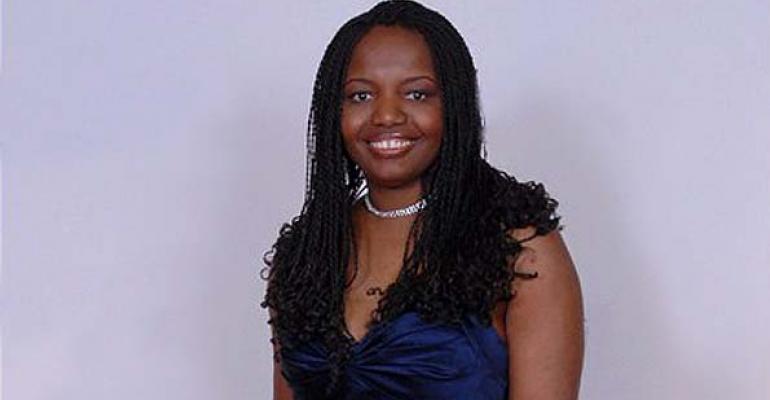For La Randa Mayes, planning great events is less about the wow factor and more about the basics.
“In my position, there aren’t too many events that ask for ‘bling,’” says Mayes, who is the event coordinator at the Supreme Court of the United States in Washington. “My goal is to make sure the flowers, linens, chairs, china and tables are set beautifully, and everything is ready on time.”
That’s a goal Mayes says she’s never missed, and doesn’t plan to. Though she admits that not everything in her unpredictable day will always work out perfectly, “you have to roll with the punches.”
Mayes’ career began at home, when she planned her own wedding in 1997. That led to a job planning events for her local church as well as offering her services to friends and family.
Her day job—as a librarian—led to her professional event career. She was working in acquisitions at the Supreme Court's library when she was contacted by court's Marshal's Office about an opening for an event planner. "They found out that I was the one who had been planning all the birthday parties for library staff," Mayes says.
Today, Mayes oversees a busy event calendar that includes meetings, luncheons, dinners and galas. Events can take place any day of the week, and of the five event spaces at the court, "at least three are being used every day," she explains. The event rooms can accommodate about 200 guests for receptions and just over 100 for dinners; the Upper Great Hall seats as many as 250 for dinners. With such stately settings, decor is not an important event element, although "We do use a lot of up lighting," Mayes says.
You don't have to be a Supreme Court justice to hold your event at the Supreme Court—but you do have to have been referred by a justice to do so.
The perception of event planners has changed radically since Mayes got her start. “When I first started, event planners were believed to be either unnecessary or too costly,” she explains. “It was a general perception that only the wealthy could afford to have an event planner. This perception of event planners has changed greatly—now we play a role in every facet of life.”
In Mayes’ current role, communication and technology are both key in making sure the government personnel she works with are kept safe, especially when outside groups rent her event space. “Every vendor has to be processed through a background clearance check, and every guest has to be on the guest list or they won’t be admitted to the event,” she says. “They have to go through our magnetometer, which is a form of screening, once they arrive.”
But for all the preparation and hard work put into each Supreme Court event, the satisfaction of pleasing A-list clients such as First Lady Michelle Obama has made a lasting impression on Mayes.
“In the middle of (an) event, the First Lady gave me thumbs-up,” she remembers. “I am still smiling from that day.”
Supreme Court of the United States 1 First St., N.E., Washington DC 20543; 202/479-3000; www.supremecourt.gov
FAMILY AFFAIR
“Luckily, my job has such a family atmosphere that I was able to bring my three kids to work every once in a while to see what Mommy does. They are all grown-up now, and I am more proud of them than ever because they allowed me to be the person that I am.”
COLD REALITY
“Sometimes you have to tell your client that their way is not always the right way, and that is why you hired me. You have to be open and honest and tell them what you know will and will not work.”
ADVICE FOR THE YOUNG PLANNER
“You have to have a passion for event planning. If you are not patient, personable, understanding, great under pressure, can handle people yelling and screaming, impatient clients, mishaps, deliveries going to another building when your event starts in an hour and you break down crying instead of thinking of another plan of action—then this is not the career path for you.”
See the full story in the March-April issue of Special Events, which is available to ISES members for free and to subscribers. Not a subscriber? We can fix that; just click here.




